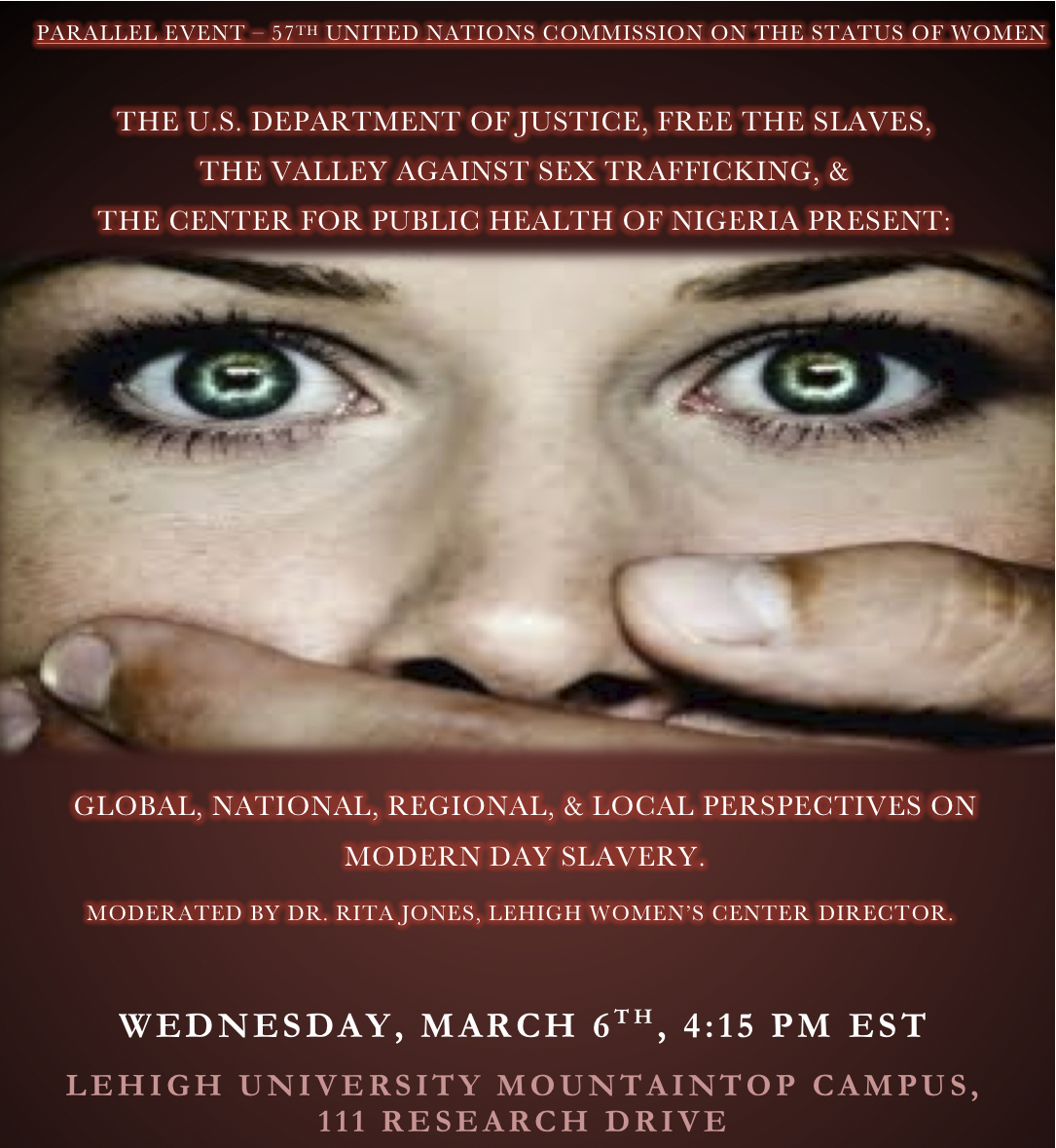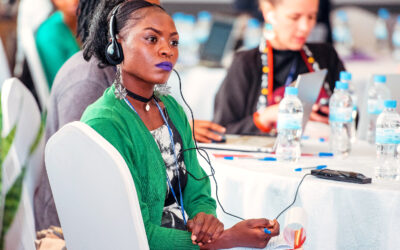Slavery is a global problem, but it can be overcome.
It’s a simple but important message.
And I was honored to deliver it at Lehigh University’s recent event on human trafficking and modern slavery.
The presentation paralleled the 57th session of the United Nations Commission on the Status of Women, the world’s principal global policy-making body dedicated exclusively to gender equality and the advancement of women.
My talk focused on the scope of slavery today. People can be enslaved in their own communities, or trafficked across borders. They might be sex trafficking victims, or domestic slaves, or trapped in debt bondage, or forced to work with toxic chemicals at a young age. They may work in agriculture, mining, fishing, construction, or hospitality. Poverty, violence, and inequality contribute to slavery.
But my presentation was also about hope. We can do something about slavery. We can empower the people that are the most vulnerable to slavery to reject it.
The Lehigh University program was webcast live from the campus in Pennsylvania to the U.N. conference.
About 150 students, faculty and staff attended the event at Lehigh, while others watched the webcast, including a group all the way in Burma. The audience was captivated by stories of slavery inside the U.S., as well as stories of slavery in Nigeria (such as child marriage).

Lehigh University Event Poster
The Q&A sessions deepened the conversation.
I was asked why slavery is an issue that should be important to everyone. I told the audience to recognize that slavery may be in many of their consumer products, and we must all be smart consumers and support companies working to root-out slavery in their supply chains.
The event was so successful that a group of Lehigh talked about starting a Free The Slaves student chapter.
Thanks to Lehigh University for sponsoring such a wonderful event!



